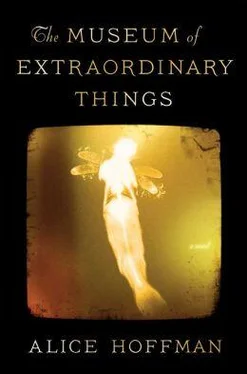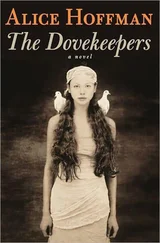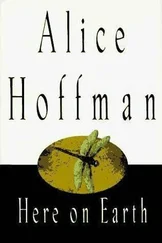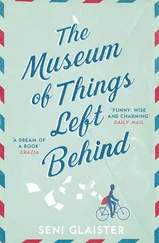I don’t know what made me open the top desk drawer in my father’s workshop; perhaps it was God’s intention or perhaps it was entirely due to my own inquisitive nature. There were papers, and contracts, and tallies of figures, along with photographs of a sexual nature I could not bring myself to look at. I may have gazed upon them for a moment, but I quickly put these things aside. What interested me most was a leather-bound journal fashioned in Morocco, a handbook of my father’s studies. I took it from the drawer, although as I did, my heart hit against my chest.
The handbook was clearly a private document, and some of it seemed to be written in code, with numbers and drawings replacing the letters. Still I could make out certain sections. My father’s handwriting was elegant, a script of flourishes that created large, perfect lettering. I began with the first few pages, a remembrance of a time when my father had been one of the greatest magicians in France. I hadn’t realized how famous he had been until I spied the articles about him, with photographs of the Professor as a younger man.
My father had written accounts of his card tricks and illuminations, some sketched out, lavishly illustrated. Soon I came upon his most famous trick of all, one so astounding people who witnessed it firsthand swore it was a miracle worthy of a saint. There was a drawing of a woman who was brought onto the stage in a steamer trunk, rolled out on a platform that had been fitted with wooden wheels. The woman’s head and legs emerged from either side of the box. Before the eyes of the audience my father sawed through the wood; as he did, the woman was cut in half. The crowd was silent, in shock, on the edge of their seats, revolted, yet straining to see more.
My father recorded how vividly the woman screamed when the sword went through her. But when the trunk was opened, the victim leapt up, half a woman with no legs at all, able to maneuver with the use of her hands as she swung herself across the stage. The audience gasped in astonishment. They had no idea of the truth of the matter: the woman was my father’s assistant, a living wonder who had been born that way. The sword’s blade was dull and had done no damage whatsoever, for it had only cut through the trunk, which was already scored. The legs that remained in the trunk had been fashioned by a sculptor, carefully painted to appear real. When the living wonder was inserted back into the steamer trunk, she was made whole again, for the legs were secretly fitted into a corset that was attached with a belt and cables. Therefore she was able to walk the length of a stage with the height of a fully grown woman.
My father left France when the half woman accused him of all manner of vile deeds, which included enslavement and defilement. A yellowing newspaper article that had been slipped between the pages stated that he had promised to marry her but instead had beaten her and forced her to perform. He had abused her and degraded her in ways that I passed over, for I thought it was improper for me to read these claims. I did notice that she’d sworn she’d been treated like a common prostitute. Enough to say she told the magistrates what my father had done, and in each instance he denied any wrongdoing. He said he was a professor, and had nothing but respect for his employee. Still, his illustrations of her in the handbook after she had made her accusations were nothing less than monstrous; scorpions and frogs leapt from her mouth and from her private areas, which should not have been drawn at all, for modesty’s sake, but were sketched in great detail.
The date when all this happened was ten years before my birth. Although my French was far from perfect, when I studied the article I understood that a court had ordered my father’s arrest on charges of fraud and abuse. The woman in the trunk would testify against him, and a trial date was set; they expected ten thousand or more onlookers, for the case had attracted the attention of the public. But like any magician worth his salt, my father vanished before the date of his trial. The newspaper report said they found his cloak and his shoes and the key to his rooms. Nothing more.
Because my father was particular, he wrote down small details another man might have overlooked. Not only the hour when he took the train to Marseilles, a city of docks where he would find his passage to America, but also what he ate for his lunch on that train—sharp cheese, white wine, olives. He wrote down the name of the ship he took, the Allemande, which sailed for New York Harbor, leaving France on a bright May day. He described the sleeping berths, the lack of fresh vegetables, the swells of the ocean as the ship pushed out to sea. He had always told me that my mother was his childhood sweetheart, and that her name was Maria Louisa, and that they had sailed from France together. But there was no mention of her in the handbook, though he’d written that he’d been forced to sleep with his overcoat as his blanket at night. Still the journey made quite an impression. The stars were so bright above the water he became mesmerized, and he saw all manner of creatures below the waves, beings so fantastic that he felt his life begin anew. Because of his experience at sea, and perhaps because of the trouble he’d been in with the law, he vowed to give up magic and study science from that day forth.
He’d always told me that my mother had cried when she saw the outline of Manhattan. She’d fallen in love with the city at first sight, as my father had fallen in love with her when she was a schoolgirl dressed in black, wearing white gloves and flat black shoes, her pale hair braided down her back. His employees might disparage him, my father had often confided, for they saw him as a harsh master, a difficult, uncompromising man who thought too highly of himself. But say what they might, he was faithful, and in time I would learn that a faithful man was as much a wonder of the world as the stars in the sky.
As I was reading, I heard my father’s unmistakable gait upstairs when he came into the kitchen to wash his hands for his dinner, which Maureen had left on the table. She had prepared a cod stew and a dessert of gingered apples and cream. I wondered if my father would mark down the components of his dinner later that evening in this same book I now held in my hands. I had no choice but to close the journal and replace it in the drawer, making certain it was in the exact position where I’d found it. I went out then, carefully clasping both locks. I was a mouse, silent as I came upstairs unnoticed, but a mouse that would not forget where the trap baited with cheese had been. I never told my father what I’d done, nor did I mention the handbook in the drawer.
But after that I knew the first part of the truth about my family.
When my father came to this city, he came alone.
IN THE LAST DAYS of March the windy month turned mild, but despite the approach of springtime, the Professor’s mood was even more foul. Ashes had swept across the East River, depositing cinders throughout the gardens of Brooklyn, smoldering among the onions and the peas with a bright yellow glow. Everyone’s attention had been riveted by the Triangle Fire, the greatest workplace disaster to occur in the history of New York. A wave of sorrow stretched out, and the world in which they lived seemed a much more perilous place. The dangers of ordinary life left the population dazed. The newspapers were filled with reports of worker unrest. Vigils of inconsolable mourners who had lost beloved family members went on throughout the city. The days were already lengthening, yet a darkness held fast. Even at dawn the light was a cold, bitter shade.
Читать дальше












